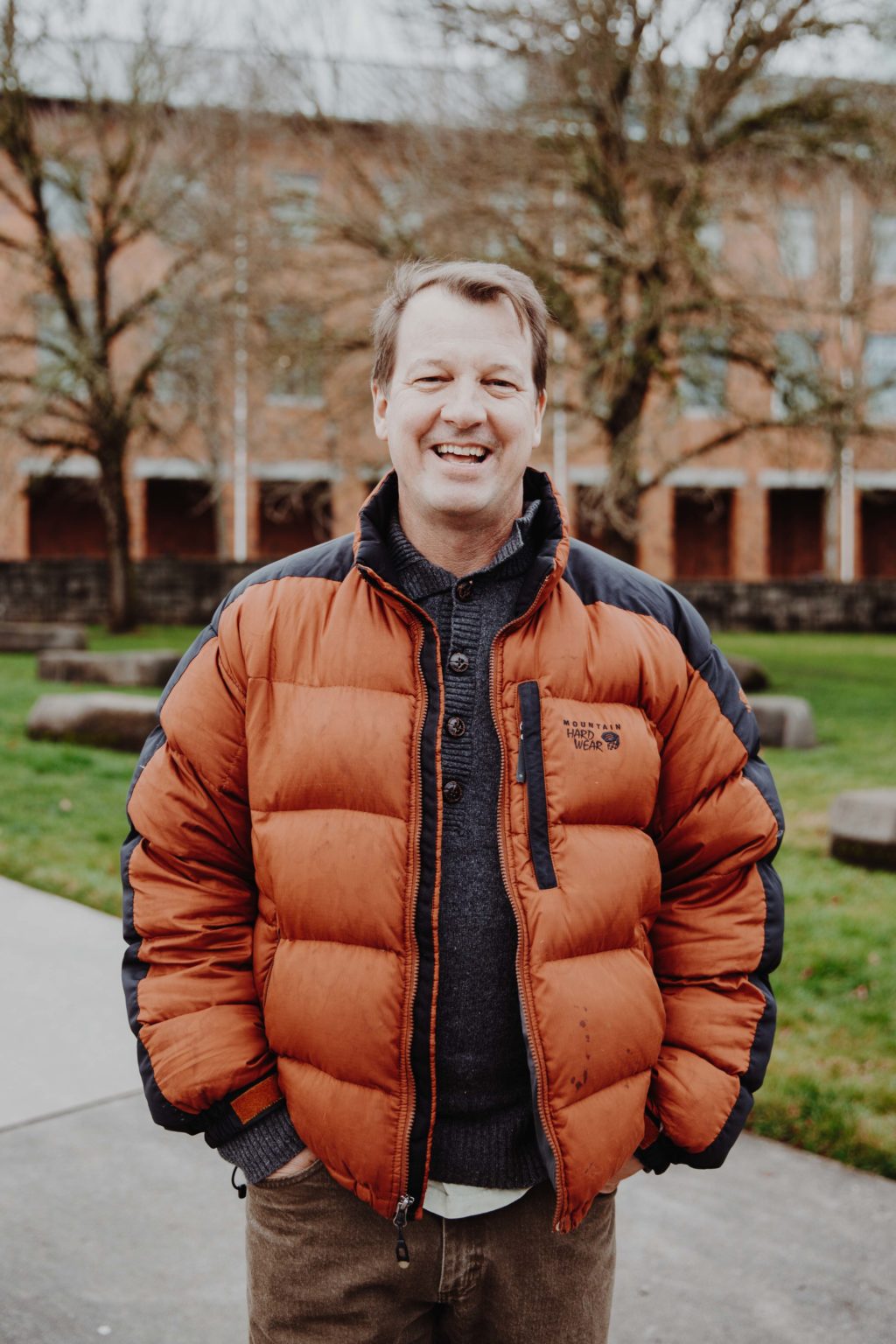School of the Environment professor, Marc Kramer and students research the correlation of rain and carbon
WSU Vancouver environmental science professor Marc Kramer believes any student from any background can make a difference concerning climate change.
“We’re working on understanding how climate change impacts the pacific northwest,” Kramer said. It is no surprise that the pacific northwest experiences heavy rainfall. In fact, Vancouver averages nearly 42 inches of rainfall annually according to U.S. Climate Data. Working alongside his students, Kramer has focused on the study of rainfall and carbon and how the two affect the Pacific ecosystem.

Earning his PhD in biogeochemistry from Oregon State University, Kramer also worked at NASA where he studied carbon on Earth and water on Mars. Kramer, along with soil scientist Oliver Chadwick, have measured soil samples from around the world finding that soil in climates with more rainfall accumulate more carbon than soil in climates with little to no rainfall, according to The Columbian.
Kramer now studies soil carbon dynamics with the School of the Environment at WSU Vancouver. His research focuses on carbon stabilization in the soil and the impact on climate change. “I also had this opportunity to start a climate change program up here [WSU Vancouver] which is what brought me up here during the Obama administration. Setting up a climate change program, thinking about climate change impacts, it fed back to the carbon cycle.”
“The way I see it is climate change will impact everyone’s lives.”
Marc Kramer
Kramer and his students utilize the forest on the outskirts of the WSU Vancouver campus as grounds for research. There, students collect soil samples and examine the effect of carbon in the soil when it rains. He explained that students use collectors to monitor the chemical transformations that happen as rain moves into the system.
“As temperatures get warmer, the rain that comes through the canopy picks up carbon and moves into the soil. Even a slight shift in the temperatures can really change how much carbon is getting stored there,” Kramer explained.

Kramer will be teaching Living on the Edge: Global Climate Change and Earth History, a class that focuses on climate change, in the fall. He encourages all students take this class, noting that anyone, from any major, can make a difference.
“We want everybody, that’s for non-science majors as well as science majors, people with a range of technical background, is really what we’re targeting,” Kramer said. “The way I see it is climate change will impact everyone’s lives.”
Aaron Hellerstein, an Integrated Strategic Communication major, said he didn’t know WSU Vancouver offered a course about climate change.
“I feel like it’s on each individual to make sure that they are educated. It’s such a relevant topic in the current climate,” Hellerstein said. As far as climate change goes, Hellerstein said “As students, just being aware and informed is important.” Kramer’s research continues to develop with the help of his students.

A nice way to begin the discussion. I often hear comments relating to global climate change as in reference to warmer temps, but the denial begins when its gets colder. This is not about warming, more to change in normal averages, up or down, that are affecting all o fus in many ways. Thanks for your leadership Michael Kimball in providing us with an intelligent starting point from a viewpoint of Kramer and the students who are learning and teaching us all.
It is important to stay up to date on the WHAT of any change in climatic norms. Increases or decreases matter. It is not the warming political banter, but the differences that affects us. Keeping track of the changes, help us to determine what is happening, such as when an area is having more than the normal 500 years floods in less than 500 year cycles. This is what matters. This affects our lives, our costs of living and insuring our homes, and abilities to get to work, our abilities to grow our own foods, now and in the future. Don’t get caught up in the hyperbole or bashing.